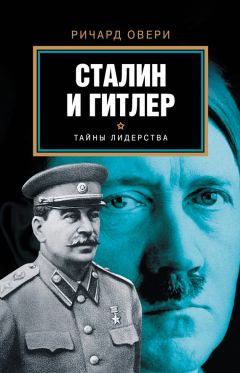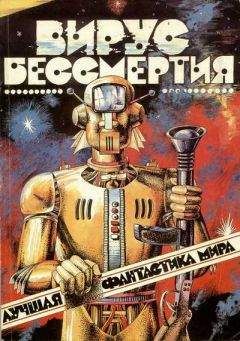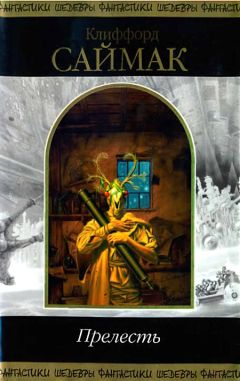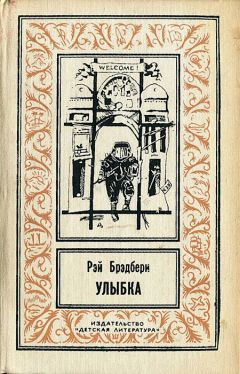Crome, L. Unbroken: Resistance and Survival in the Concentration Camps (London, 1988).
Curtiss, J. S. The Russian Church and the Soviet State (Gloucester, Mass., 1965).
Dahlmann, D. and Hirschfeld, G. (eds) Lager, Zwangsarbeit, Vertreibung und Deportation (Essen, 1999).
Dallin, A. German Rule in Russia 1941–1945 (2nd edn, London, 1981).
Daniels, R. V. The Conscience of the Revolution: Communist Opposition in Soviet Russia (Cambridge, Mass., 1960).
Daniels, R. V. Trotsky, Stalin and Socialism (Boulder, Colo., 1991).
Daniels, R. V. ‘Trotsky’s conception of the revolutionary process’, in T. Brotherstone and P. Dukes (eds) The Trotsky Reappraisal (Edinburgh, 1992), pp. 145–55.
Dann, O. Nation und Nationalismus in Deutschland 1770–1990 (Munich, 1993).
David-Fox, M. ‘Memory, Archives, Politics: The Rise of Stalin in Avtorkhanov’s Technology of Power’, Slavic Review, 54 (1995), pp. 988–1003.
David-Fox, M. Revolution of the Mind: Higher Learning among the Bolsheviks 1918–1929 (Ithaca, NY, 1997).
David-Fox, M. and Hoffmann, D. ‘The Politburo Protocols, 1919–40’, Russian Review, 55 (1996), pp. 99–103.
Davies, R. W. (ed.) From Tsarism to the New Economic Policy (Ithaca, NY, 1991).
Davies, R. W. ‘The Socialist Market: A Debate in Soviet Industry 1932–1933’, Slavic Studies, 43 (1984), pp. 201–23.
Davies, R. W. Soviet Economic Development from Lenin to Khrushchev (Cambridge, 1998).
Davies, R. W. ‘Soviet Military Expenditure and the Armaments Industry 1929–1933’, Europe – Asia Studies, 45 (1993), pp. 577–608.
Davies, R. W. and Harrison, M. ‘Defence spending and defence industry in the 1930s’, in J. Barber and M. Harrison Soviet Defence-Industry Complex from Stalin to Khrushchev (London, 2000), pp. 70–95.
Davies, R. W., Harrison, M. and Wheatcroft, S. G. The Economic Transformation of the Soviet Union 1913–1945 (Cambridge, 1994).
Davies, S. Popular Opinion in Stalin’s Russia: Terror, Propaganda and Dissent, 1934–1941 (Cambridge, 1997).
Day, R. B. The ‘Crisis’ and the ‘Crash’: Soviet Studies of the West 1917–1939 (Ithaca, NY, 1984).
Dean, M. Collaboration in the Holocaust: Crimes of the Local Police in Belorussia and Ukraine, 1941–44 (London, 2000).
Dean, M. ‘The Development and Implementation of Nazi Denaturalization and Confi scation Policy up to the Eleventh Decree of the Reich Citizenship Law’, Holocaust and Genocide Studies, 16 (2002), pp. 217–42.
Degras, J. and Nove, A. (eds) Soviet Planning: Essays in Honour of Naum Jasny (Oxford, 1964).
Deist, W. (ed.) The German Military in the Age of Total War (Oxford, 1985).
Deist, W. The Wehrmacht and German Rearmanent (London, 1981).
Deist, W. et al. Das Deutsche Reich und der Zweite Weltkrieg: Band I (Stuttgart, 1979).
D’Encausse, H. C. The Great Challenge: Nationalities and the Bolshevik State 1917–1930 (New York, 1992).
Depretto, J.-P. Les Ouvriers en U.R.S.S. 1928–1941 (Paris, 1997).
Depretto, J.-P. ‘L’opinion ouvrière (1928–1932)’, Revue des Ëtudes Slaves, 66 (1994), pp. 55–60.
Deutscher, I. Stalin: a Political Biography (London, 1966).
Dewhirst, M. and Farrell, R. The Soviet Censorship (New York, 1973).
Diewald-Kerkmann, G. ‘Denunziantentum und Gestapo. Die freiwilligen ‘Helfer’ aus der Bevölkerung’, in G. Paul and K.-M. Mallmann (eds) Die Gestapo: Mythos und Realität (Darmstadt, 1995).
Die Weisse Rose. Student Resistance to National Socialism 1942/1943: Forschungsergebnisse und Erfahrungsberichte (Nottingham, 1991).
Dlugoborski, W. ‘Das Problem des Vergleichs von Nationalsozialismus und Stalinismus’, in D. Dahlmann and G. Hirschfeld (eds)
Lager, Zwangsarbeit, Vertreibung und Deportation (Essen, 1999) pp. 19–28.
Dohan, M. R. The Economic Origins of Soviet Autarky 1927/28–1934’, Slavic Review, 35 (1976), pp. 603–35.
Dörner, B. ‘Heimtücke’: Das Gesetz als Waffe: Kontrolle, Abschreckung und Verfolgung in Deutschland 1933–1945 (Paderborn, 1998).
Dove, R. and Lamb, S. (eds) German Writers and Politics 1918–39 (London, 1992).
Dreier, R. and Sellert, W. Recht und Justiz im ‘Dritten Reich’ (Frankfurt am Main, 1989).
Drobisch, K. and Wieland, G. System der NS-Konzentrationslager 1933–1939 (Berlin, 1993).
Droste, M. Bauhaus 1919–1933 (Cologne, 1998).
Dunin-Wasowicz, K. Resistance in the Concentration Camps (Warsaw, 1982).
Dunmore, T, The Stalinist Command Economy: the Soviet State Apparatus and Economic Policy 1945–1953 (London, 1980).
Dunn, W. S. Hitler’s Nemesis: the Red Army, 1930–1945 (Westport, Conn., 1994).
Dunn, W. S. The Soviet Economy and the Red Army 1930–1945 (London, 1995).
Durgan, A. ‘Trotsky, the POUM and the Spanish Revolution’, Journal of Trotsky Studies, 2 (1994), pp. 43–74.
Dwork, D. and Pelt, R. J. van Auschwitz: 1270 to the Present (New York, 1996).
Dyakov, Y. and Bushuyeva, T. The Red Army and the Wehrmacht: How the Soviets Militarized Germany 1922–1933 (New York, 1995).
Eaton, K. B. (ed.) Enemies of the People: The Destruction of Soviet Literary, Theater, and Film Arts in the 1930s (Evanston, Ill., 2002).
Eaton, R. Ideal Cities: Utopianism and the (Un) Built Environment (London, 2001).
Echevarria, A. J. After Clausewitz: German Military Thinkers before the Great War (Lawrence, Kans., 2000).
Edele, M. ‘Strange Young Men in Stalin’s Moscow’, Jahrbücher für Geschichte Osteuropas, 50 (2002), pp. 22–36.
Edmondson, L. and Waldron, P. (eds) Economy and Society in Russia and the Soviet Union 1860–1930: Essays for Olga Crisp (London, 1992).
Elleinstein, J. Staline (Paris, 1984).
Ellman, M. ‘The Soviet 1937 Provincial Show Trials: Carnival or Terror?’, Europe – Asia Studies, 53 (2001), pp. 1221–34.
Elon, A. The Pity of it All: A Portrait of Jews in Germany 1743–1933 (London, 2002).
El-Tayeb, F. ‘“Blood is a very special Juice”: Racialized Bodies and Citizenship in Twentieth-Century Germany’, International Review of Social History, 44 (1999), pp. 149–69.
Engerman, D. C. ‘William Henry Chamberlin and Russia’s Revolt Against Western Civilization’, Russian History, 26 (1999), pp. 45–64.
Erickson, J. (ed.) Barbarossa: the Axis and the Allies (Edinburgh, 1994).
Erickson, J. ‘Red Army Battlefi eld Performance, 1941–1945; the System and the Soldier’, in P. Addison and A. Calder (eds) Time to
Kill: The Soldier’s Experience of War in the West 1939–1945 (London, 1997).
Erickson, J. The Road to Berlin: Stalin’s War with Germany (London, 1983).
Erickson, J. The Road to Stalingrad (London, 1975).
Erickson, J. The Soviet High Command: a Military-Political History 1918–1941 (London, 1962).
Erickson, J. ‘Soviet Women at War’, in J. Garrard and C. Garrard (eds) World War 2 and the Soviet People (London, 1993), pp. 50–76.
Ericson, E. E. Feeding the German Eagle: Soviet Economic Aid to Nazi Germany, 1933–1941 (Westport, Conn., 1999).
Erlich, V. Russian Formalism. History-Doctrine (3rd edn, New Haven, Conn., 1981).
Ermolaev, H. Censorship in Soviet Literature (Lanham, Md., 1997).
Ermolaev, H. Soviet Literary Theories 1917–1934: the Genesis of Socialist Realism (New York, 1977).
Fainsod, M. How Russia Is Ruled (Cambridge, Mass., 1967).
Fainsod, M. Smolensk under Soviet Rule (Boston, Mass., 1989).
Falter, J. and Kater, M. H. ‘Wähler und Mitglieder der NSDAP’, Geschichte und Gesellschaft, 19 (1993), pp. 155–77.
Farber, S. Before Stalinism: The Rise and Fall of Soviet Democracy (Cambridge, 1990).
Feinstein, M. M. ‘Deutschland über alles? The National Anthem Debate in the Federal Republic of Germany’, Central European History’, 33 (2000), pp. 505–31.
Felshtinsky, Y. ‘Lenin, Trotsky, Stalin and the Left Opposition in the USSR 1918–1928’, Cahiers du monde russe, 31 (1990), pp. 569–78.
Fenander, S. ‘Author and Autocrat: Tertz’s Stalin and the Ruse of Charisma’, Russian Review, 58 (1999), pp. 286–97.
Fenner, J. Le Goulag des Tsars (Paris, 1986).
Fenske, H. Bürokratie in Deutschland von späten Kaiserreich bis zur Gegegnwart (Berlin, 1985).
Fieberg, G. Justiz im nationalsozialistischen Deutschland (Bundesministerium der Justiz, Cologne, 1984).
Figes, O. A People’s Tragedy: the Russian Revolution 1891–1924 (London, 1996).
Figes, O. Natasha’s Dance: a Cultural History of Russia (London, 2002).
Figes, O. and Kolonitskii, B. Interpreting the Russian Revolution: the Language and Symbols of 1917 (New Haven, Conn., 1999).
Filtzer, D. Soviet Workers and Stalinist Industrialization (London, 1986).
Filtzer, D. ‘Stalinism and the Working Class in the 1930s’, in J. Channon Politics, Society and Stalinism in the USSR (London,
1998), pp. 163–84.
Filtzer, D. ‘The Standard of Living of Soviet Industrial Workers in the Immediate Postwar Period, 1945–1948’, Europe – Asia Studies,
51 (1999), pp. 1013–38.
Fischer, C. The Rise of the Nazis (Manchester, 2002).
Fischer, C. Stormtroopers: a Social, Economic and Ideological Analysis 1929–1935 (London, 1983).
Fitzpatrick, S. ‘Ascribing Class: The Construction of Social Identity in Soviet Russia’, Journal of Modern History, 65 (1993), pp. 745–70.
Fitzpatrick, S. The Cultural Front: Power and Culture in Revolutionary Russia (Ithaca, NY, 1992).
Fitzpatrick, S. Everyday Stalinism. Ordinary Life in Extraordinary Times: Soviet Russia in the 1930s (Oxford, 1999).
Fitzpatrick, S. ‘How the Mice Buried the Cat: scenes from the Great Purges of 1937 in the Russian Provincesl, Russian Review, 52
(1993), pp. 299–320.
Fitzpatrick, S. ‘Ordzhonokidze’s Takeover of Vesenkha: a Case Study in Soviet Bureaucratic Polities’, Soviet Studies, 37 (1985),
pp. 153–72.
Fitzpatrick, S. The Russian Revolution (Oxford, 1994).
Fitzpatrick, S. ‘Signals from Below: Soviet Letters of Denunciation of the 1930s’, Journal of Modern History, 68 (1996), pp. 831–66.
Fitzpatrick, S. ‘Stalin and the Making of a New Elite, 1928–1939’, Slavic Review, 38 (1979), pp. 377–402.
Fleischauer, I. and Pinkus, B. The Soviet Germans: Past and Present (London, 1986).
Fleming, G. Hitler and the Final Solution (London, 1985).
Flores, M. and Gori, F. (eds) GULag: il sistema dei lager in URSS (Milan, 1999).
Förster, J. ‘Hitler Turns East – German War Policy in 1940 and 1941’, in B. Wegner (ed.) From Peace to War: Germany, Soviet
Russia and the World 1939–1941 (Providence, RI, 1997), pp. 115–34.
Förster, J. ‘Ludendorff and Hitler in Perspective: The Battle for the German Soldier’s Mind, 1917–1944’, War in History, 10 (2003),
pp. 321–34.
Förster, J. The Relation between Operation Barbarossa as an Ideological War of Extermination and the Final Solution’, in D. Cesarani
(ed.) The Final Solution: Origins and Implementation (London, 1994), pp. 85–102.




